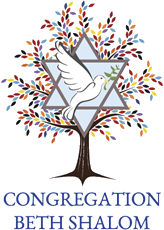March 14, the Shabbat preceding Purim, is known as Shabbat Zachor. On this Shabbat an extra portion of the Law is read that begins with the phrase, `Remember what Amalek did to you’. This portion is linked to Purim because the Haftorah in 1 Samuel 15 relates the meeting between Saul and Agag, the King of the Amalekites. Haman is described in the Book of Esther as an Agagite and, therefore, a descendant of Amalek.
Now, in the 25th chapter of the Book of Deuteronomy that we read on Shabbat Zachor, we are commanded to remember what the Amalekites did to us on our way from Egypt to the Promised Land, how Amalek picked off the old and weak and disabled who had lagged behind the rest of Israel. And we are commanded to blot out the name of Amalek. That is why we make all the noise when we hear Haman’s name mentioned during the Megillah reading.
The rabbis puzzled over this command, which appears to be saying `remember to forget’, and have commented that there are really two commands here – to remember and to forget. Remember that it was actually Israel’s responsibility to protect all of the community. Israel let the Amalekites kill off those in Israel who could not keep up with the rest by choosing to let those members of the community lag behind and remain outside the protection of the community. For this Israel had to bear responsibility for what Amalek did. We must remember this and then blot out Amalek’s (Haman’s) name so that they are forgotten.
Most recently this set of commands has been applied to those with disabilities. All too many of our institutions are inaccessible to those with special needs…whether it is the lack of physical accessibility, assisted listening devices or Braille texts…all things which can be physically provided.
But there is another type of accessibility which is not physical but, rather, emotional. Our Jewish community needs not just institutions that can be entered physically; they must be emotionally welcoming, too. All too often interfaith families, families with small children, gays and lesbians, those with very limited financial resources, Jews by Choice and Jews with illnesses are not truly welcome.
If we are to build a truly vibrant Jewish community, we must be open to all and welcome the varied contributions that a diverse population has to offer.
Here at Congregation Beth Shalom we do a very good job of being open to all. But we need to be a `Light to the Nations’, including to those Jewish institutions that are not as open and caring. We need to remind them that it is not just something nice to do…it is our obligation.
B’Shalom
Rabbi Stanley Halpern
